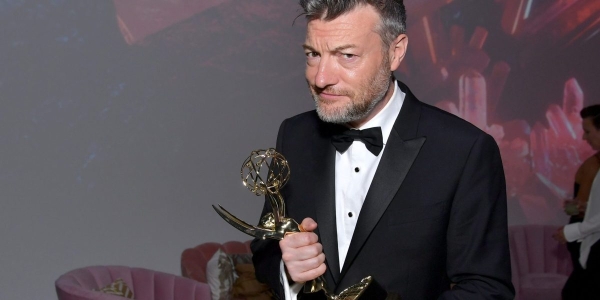
Since OpenAI’s generative A.I. chatbot ChatGPT became a cultural phenomenon in recent months, users experimenting with the technology have asked it to do everything from explain complex topics to write poems about pickles.
The tech’s success rate is questionable, however, with some users being left flummoxed or even a little disturbed by the chatbot’s responses to their questions.
One user who was left particularly disappointed when he tried to enlist the technology to assist him with his work is Charlie Brooker, the creator of Emmy-winning sci-fi anthology series Black Mirror, which explores the dark potential of technology and the people who use it.
The series will return to Netflix later this month for a sixth season.
In an interview published in the July issue of British film magazine Empire, Brooker revealed that he had, like millions of others, toyed with A.I. chatbot phenomenon ChatGPT.
“The first thing I did was type ‘generate Black Mirror episode’ and it comes up with something that, at first glance, reads plausibly, but on second glance, is shit,” he said. “Because all it’s done is look up all the synopses of Black Mirror episodes and sort of mush them together. Then if you dig a bit more deeply you [realize], ‘Oh, there’s not actually any real original thought here.’”
Brooker isn’t the only ChatGPT user to have asked the technology to come up with a TV or movie script—and many have been left with disappointing or comical results.
While Brooker was left underwhelmed by ChatGPT’s creative writing abilities, Brooker said the technology did teach him a lesson about how he could refresh Black Mirror, which first aired in 2011.
“I was aware that I had written lots of episodes where someone goes ‘Oh, I was inside a computer the whole time!” he quipped. “So, I thought, ‘I’m just going to [throw] out any sense of what I think a Black Mirror episode is.’ There’s no point in having an anthology show if you can’t break your own rules. Just a sort of nice, cold glass of water in the face.”
Will life imitate art?
With ChatGPT and competing large language models seeing huge investments from the likes of Microsoft, Google, and China’s Baidu, many have questioned whether—in speculation that could have been lifted directly from a Black Mirror episode—the growing capabilities of A.I. will soon see human workers replaced with machines.
While Brooker isn’t convinced he’ll be usurped by a chatbot anytime soon, some experts have pondered whether writers and people in other creative industries might have something to worry about. Generally, though, many agree that the technology still lacks human-level originality and creativity.
That isn’t to say that no one believes there are jobs at risk, however.
Last week, the CEO of Nvidia—which recently saw its valuation skyrocket to near $1 trillion thanks to excitement over its A.I. chips—said that while A.I. may not steal your job, someone who is an expert in A.I. just might.
However, a Harvard future-of-work expert is adamant that only one profession is really at risk of being replaced.
“I wouldn’t want to be someone who does the reading or summarization of business books to send out 20-page summaries because A.I. is really good at summarization already,” Joseph Fuller, a professor of management at Harvard Business School, told Fortune on Tuesday.
